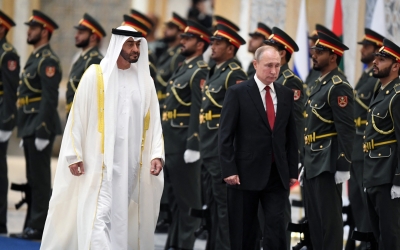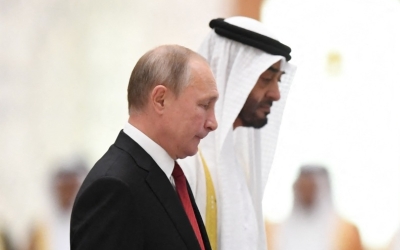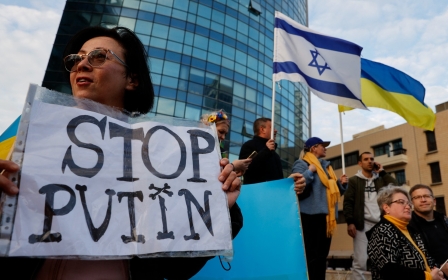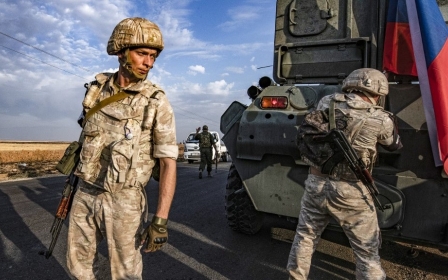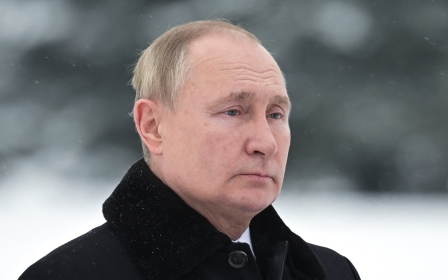Russia-Ukraine war: UAE cancels visa waiver for Ukrainians days into invasion
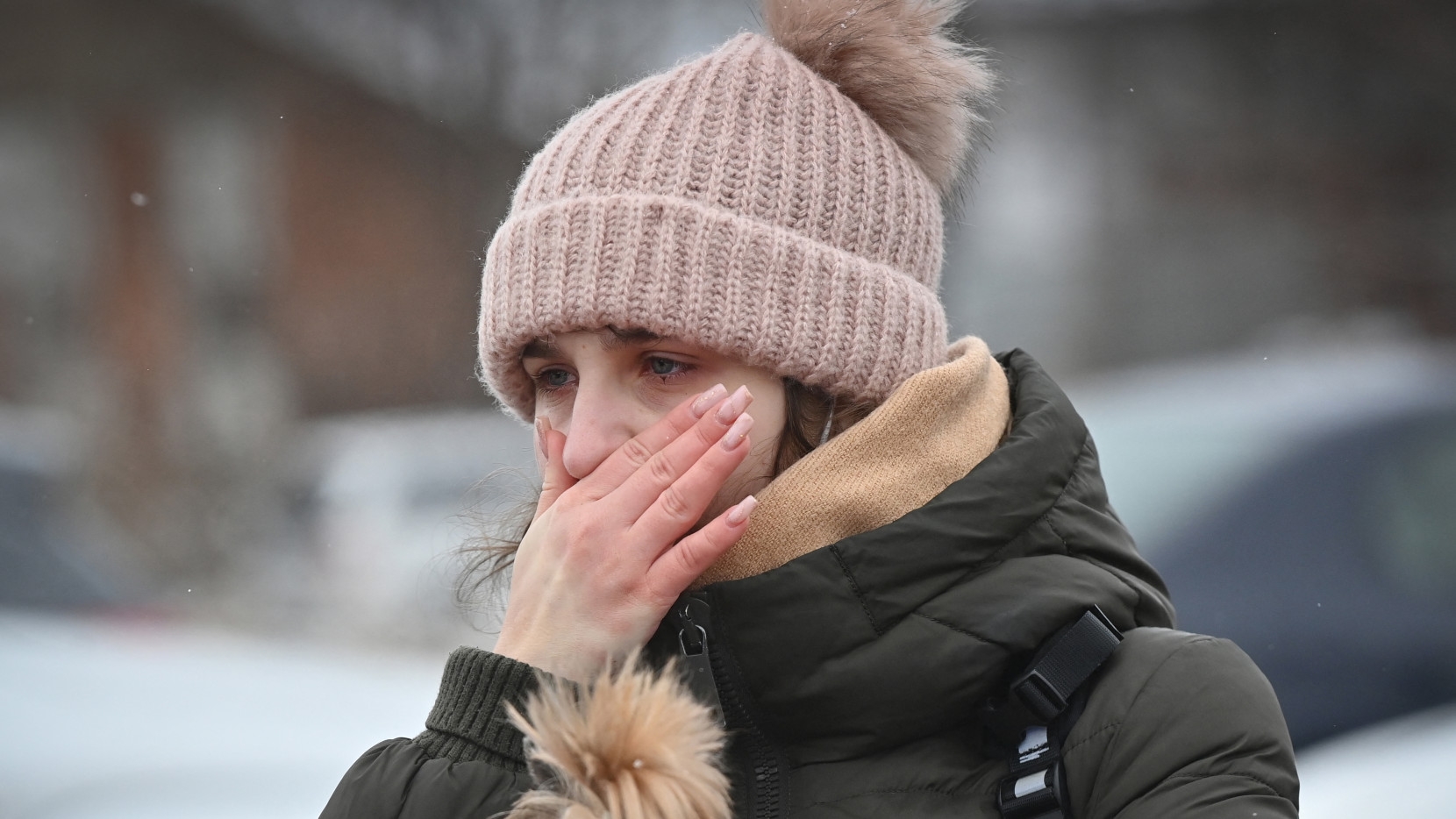
The United Arab Emirates has suspended a visa waiver that allowed Ukrainian citizens to stay in the country for up to 30 days without a visa.
The news was announced on the Facebook page of the Ukrainian embassy in the UAE on 1 March, just six days into the Russian invasion of Ukraine with hundreds of thousands of Ukrainians fleeing the country.
"Starting March 1, 2022, the United Arab Emirates will temporarily suspend the action of the Memorandum of mutual understanding between the Cabinet of Ministers of Ukraine and the Government of the United Arab Emirates on mutual cancellation of visa requirements,” the Facebook post read.
“From today, citizens of Ukraine - passport holders of Ukrainian citizen for going abroad should receive a suitable visa for visiting the UAE,” it said.
“The temporary suspension of action of the Memorandum on mutual understanding does not apply to those Ukrainian citizens who are already in the UAE. Regarding citizens of Ukraine who arrived to the UAE for tourist purposes and were unable to return to Ukraine due to the beginning of the armed aggression of the Russian Federation, the Embassy will further inform.”
Roughly 15,000 Ukrainians work and live in the UAE, whose population is approximately 90 percent expatriates. Some 250,000 Ukrainians visit the UAE as tourists annually, according to the Kyiv government.
Approximately 40,000 Russian nationals live in the UAE, according to its state news agency WAM. Russian citizens can get a 90-day tourist visa on arrival upon entering the UAE.
'Depth of friendship' with Moscow
On Sunday, the UAE showed its reluctance to condemn the Russian invasion which, according to the Kyiv government, has resulted in the death of hundreds of Ukrainian citizens and soldiers. The UN said that as of 1 March, some 600,000 Ukrainians had fled the country.
The UAE "believes that taking sides would only lead to more violence", Anwar Gargash, the diplomatic adviser to President Khalifa Bin Zayed Al Nahyan, tweeted.
'Our priority is to encourage all parties to resort to diplomatic action and to negotiate to find a political solution'
- Anwar Gargash, UAE diplomatic adviser
The comment came after the UAE abstained during a vote on Friday on a draft UN Security Council resolution deploring Moscow's invasion of Ukraine. It did not pass because of Russia's veto.
"The UAE has a firm position regarding the United Nations, international law, and the sovereignty of states, rejecting military solutions," Gargash said.
"In the Ukrainian crisis, our priority is to encourage all parties to resort to diplomatic action and to negotiate to find a political solution."
Hours before Russia unleashed its massive assault against Ukraine last week, the UAE stressed its "depth of friendship" with Moscow.
The National, a UAE-based publication owned by a member of its royal family, has reportedly told staff not to refer to Russia's attack on Ukraine as an "invasion".
Gulf countries have largely kept quiet about Russia's invasion.
Saudi Arabia has not reacted to the invasion, neither has the UAE, Bahrain or Oman.
Kuwait and Qatar have only denounced the violence, stopping short of criticising Moscow. On Monday, Qatar's foreign minister called for a diplomatic settlement to the conflict, to preserve Ukraine's sovereignty and territorial integrity within its internationally recognised borders.
Global energy market
Russia's President Vladimir Putin spoke with Abu Dhabi Crown Prince Mohammed bin Zayed (MBZ) on Tuesday about the need for continued coordination over Opec+, as oil prices again traded above $100 a barrel against the backdrop of the Ukraine conflict.
Putin and MBZ discussed "supporting stability in the global energy market", according to a Kremlin statement on Tuesday.
Opec+, a 23-nation alliance that includes Saudi Arabia, the UAE and Russia, will meet on Wednesday, where it is expected to keep increasing production only gradually, according to the Saudi Press Agency.
On Sunday, the kingdom confirmed its commitment to an Opec+ agreement with Russia and its allies.
Russia's invasion of Ukraine has sent oil prices jumping above $100 for the first time since 2014, and intensifying sanctions by the West have raised questions as to whether countries such as Saudi Arabia will be willing to step up production to help moderate prices.
US President Joe Biden has tried to put pressure on Saudi Arabia and the UAE to increase oil production, but they have so far rejected the administration's calls.
Riyadh and Abu Dhabi have the largest spare capacities - extra volume of production that can be easily and quickly exported - among all the Opec countries.
Experts previously told MEE that according to current trends in the market, the price of a barrel of oil could reach as much as $120, creating a heavy burden for many countries around the world already reeling from the economic impact of the Covid-19 pandemic.
UAE and Russian investment
Trade between Russia and the GCC countries jumped from around $3bn in 2016 to more than $5bn in 2021, mostly with the UAE and Saudi Arabia, official figures show.
The UAE, in particular Dubai, has long been seen as a magnet for Russian investment and a vacation destination for the Russian elite.
While it has been one of the US's top allies in the Middle East, the UAE has invested billions of dollars in Russia through one of its wealth funds.
'Gulf countries fear damaging this relationship and seek to maintain Russian participation in OPEC+'
- Ellen Wald, senior fellow at the Atlantic Council
As major players in the energy markets, most GCC states have a relationship with Russia as fellow producers.
Riyadh and Moscow are leading the OPEC+ alliance, strictly controlling output to buoy prices in recent years.
Arab members of OPEC are in a tough spot diplomatically, as maintaining the OPEC+ deal, which controls production, "is clearly at the forefront of their considerations", Ellen Wald, a senior fellow at the Atlantic Council think-tank, told AFP.
"Gulf countries fear damaging this relationship and seek to maintain Russian participation in OPEC+... If Russia left the group, the entire agreement would probably collapse."
Despite calls by some major oil importers for crude producers to boost supply and help stabilise soaring prices, Riyadh, the world's top exporter, has shown no interest.
"Staying silent on Russian action in Ukraine is probably the best course for this at the moment," Wald said.
"But this pragmatic stance may become untenable if pressed on their position by western leaders."
This article is available in French on Middle East Eye French edition.
Middle East Eye delivers independent and unrivalled coverage and analysis of the Middle East, North Africa and beyond. To learn more about republishing this content and the associated fees, please fill out this form. More about MEE can be found here.


